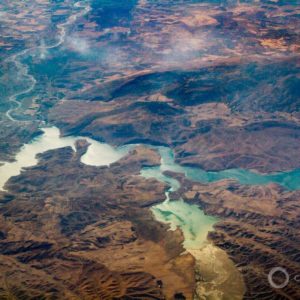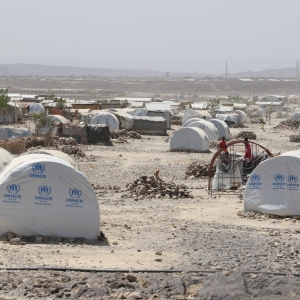The Stream, December 4, 2020: U.K’s Response to Water Pollution Incidents Declines During Pandemic
GLOBAL DAILY WATER NEWS
- The Environment Agency in the United Kingdom is responding to less reports of water pollution during the Covid-19 pandemic.
- India announces a potential plan to build a dam on the Brahmaputra river just days after China releases plans to build a dam just upstream.
- Over half of waterways in Iowa remain impaired, although the number has declined for the first time in over two decades.
- Internal emails from the water group in Australia’s Department of Planning, Industry and Environment seemingly confirm accusations in a recent report of favoritism towards irrigation.
A copper manufacturing company in Pennsylvania has been charged in federal court for violating the Clean Water Act.
“In order to safeguard the environment, it is essential that the government receives accurate, honest and timely information. Today’s charges demonstrate that we will hold violators responsible for breaking our environmental laws.” – Jennifer Lynn of the EPA’s Criminal Enforcement Program in Pennsylvania. Hussey Copper was charged in federal court for knowingly discharging excess pollutants, including oil and copper, into the Ohio River over a five-year period. The Times reports that the charges include three counts of Clean Water Act violations, including submitting a false discharge monitoring report, releasing a potentially harmful amount of oil into the Ohio River and failing to immediately notify regulators of exceedances.
IN RECENT WATER NEWS
Shortly the networks called the 2020 presidential race for Joe Biden, a list of four priorities appeared on the president-elect’s transition website: Covid-19, Economic Recovery, Racial Equity and Climate Change.
Certain observers noticed a common thread — an undercurrent, if you will — that knitted these priorities together: water. Water, which washes hands during the pandemic. Water, which is needed for factories to produce goods, farms to grow crops, and cities to reboot. Water, which has sometimes been denied to communities of color or delivered in polluted form. And water, which is how a warming planet will wreak much of its havoc.
In Case You Missed It:
What the Biden Administration Might Mean for Water — Circle of Blue reporter Brett Walton hosted a roundtable discussion with three experts about what a Biden administration might mean for federal water policy.
Talks of Brahmaputra River Dam Raise Tensions Between India and China
TS Mehra, a senior official in India’s federal water ministry, announced on Tuesday that India is considering building a hydropower dam in Arunachal Pradesh after China announced a project to build a dam upstream. Al Jazeera reports that Indian authorities expressed concerns that China’s dam, which would sit on the Chinese portion of the Brahmaputra river, could cause flash floods or create water scarcity in India.
Then on Wednesday, Ji Rong, an official at the Chinese embassy in New Delhi, said they will take the concerns of India and Bangladesh into consideration as they solidify plans for the dam, Reuters reports. Rong said the project will fully consider “the impact on the downstream areas and the interests” of all countries along the Brahmaputra river.
TODAY’S TOP WATER STORIES, TOLD IN NUMBERS
292 WATER POLLUTION INCIDENTS
The U.K.’s Environment Agency only attended 292 water pollution incidents between April and August of 2020, down 83 percent during the same period last year. The decrease has prompted concerns that the Covid-19 crisis is inadvertently allowing companies to break environmental regulations without repercussions. The Guardian reports that although attended incidents have declined drastically, the number of reported incidents has only decreased three percent from last year. Water quality tests are also occurring at lower rates, although data from the agency themselves has found that only 14 percent of watercourses in the U.K. are in good ecological health.
60 PERCENT OF RIVERS, STREAMS, LAKES AND RESERVOIRS
Segments of 750 lakes, rivers and other waterways, nearly 60 percent, in Iowa are considered impaired, according to the Iowa Department of Natural Resources. The Des Moines Register reports, however, that the newly released assessment shows parts of 99 lakes, rivers, streams and reservoirs were taken off this year’s impairment list. According to Iowa DNR water quality leaders, this is the first decline in the number of impaired water bodies in the state in 22 years. Bacteria and algae blooms are leading causes of impairment and officials across the state have called for more regulations to protect and repair waterways.
ON THE RADAR
Internal emails between members of the water group in Australia’s Department of Planning, Industry and Environment (DPIE Water) reveal discussions over which stakeholders should and should not receive social media materials to promote the government’s consultations on the regulation of flood plain harvesting. The internal discussions, which were inadvertently included in an email sent to several stakeholders, come only a week after the Independent Commission Against Corruption released a report accusing New South Wale’s water bureaucrats of having an “entrenched irrigator focus” that made “policy making vulnerable to improper favouritism.” The Guardian reports that Melinda Pavey, the current NSW water minister, said the report’s findings were more indicative of past leadership and that department culture had changed. The new emails suggest this may not be the case, as they suggested withholding information from groups that are typically unfavorable to the department, according to the emails.
Jane is a Communications Associate for Circle of Blue. She writes The Stream and has covered domestic and international water issues for Circle of Blue. She is a recent graduate of Grand Valley State University, where she studied Multimedia Journalism and Women, Gender and Sexuality Studies. During her time at Grand Valley, she was the host of the Community Service Learning Center podcast Be the Change. Currently based in Grand Rapids, Michigan, Jane enjoys listening to music, reading and spending time outdoors.






Leave a Reply
Want to join the discussion?Feel free to contribute!